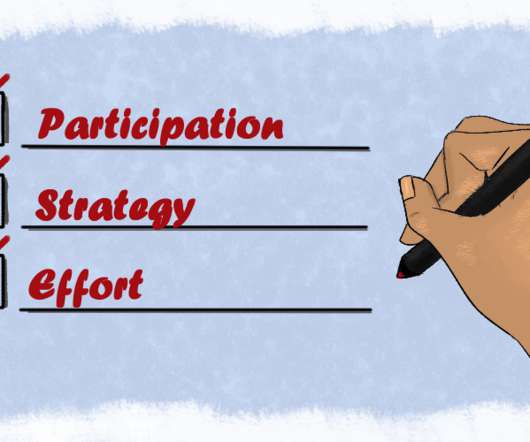Strengthening program evaluation in your nonprofit
ASU Lodestar Center
OCTOBER 16, 2020
Drawing from adult learning theories, ECB utilizes a variety of strategies such as: Vehicle of instruction: face-to-face meetings, teleconferences, classroom style learning, web-based mechanisms, manuals, etc. By following these steps, your organization can replace poor capacity with self-sufficiency, self-determination, and empowerment.










Let's personalize your content